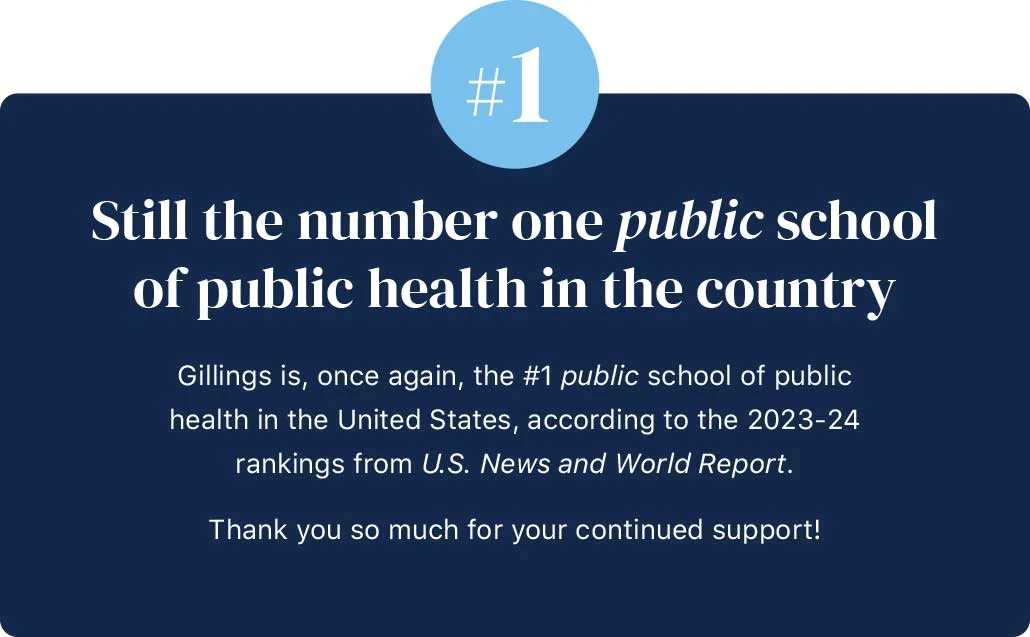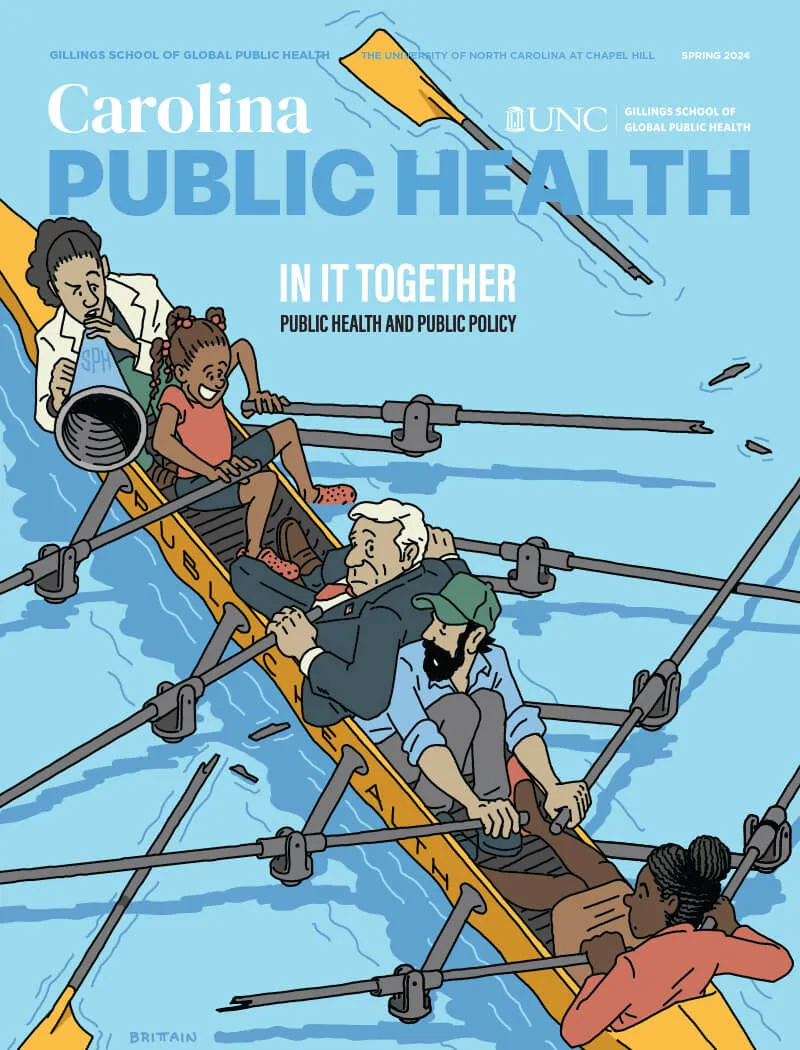Making health more equitable
Dr. Shakia Hardy, Dr. Samuel Baxter and Dr. Natalicio Serrano
Gillings faculty focus on reducing health inequities in hypertension, men's health and physical activity through research and policy.
The UNC Gillings School of Global Public Health is committed to eliminating health inequities across North Carolina and around the world. Minoritized and other disadvantaged groups face increased rates of many chronic health conditions, including hypertension, diabetes and cardiovascular disease. Three new faculty members at the Gillings School are studying these issues, each tackling the problem from their own unique angle.
Addressing Adolescent Hypertension
Shakia Hardy, PhD, assistant professor of epidemiology, is focused on early intervention to prevent health inequities. Disparities appear early in life, with Black adolescents already facing increased cardiovascular risk factors compared to their peers. Hardy first encountered these issues while working as a health and nutrition specialist for a HeadStart program in rural eastern N.C.
“This experience made me acutely aware of how early in the life course low socioeconomic and minority populations can develop cardiovascular risk factors,” said Hardy. “I became passionate about investigating and intervening on the reasons why this occurred.”
Today her research efforts focus on the social and behavioral determinants of hypertension and cardiovascular disease across the life course and evaluating interventions that can increase health equity. She serves as co-principal investigator of the EPIPHANY study, which is a large randomized trial that seeks to prevent hypertension among Black adults.
Hardy also has a career development award from the National Heart, Lung, and Blood Institute to develop and pilot test a peer support intervention to lower blood pressure among rural, Black adolescents in the Southeast. Coming from a rural community herself, Hardy is very passionate about rural health. She is currently doing formative work to tailor this intervention to the rural environment.
Improving Health for Black Men
Despite being more socially advantaged, men have a lower healthy life expectancy compared to women. This is largely due to differences in social norms, expectations and support across health behaviors, preventative screening and medical treatment between men and women. The outcomes get even bleaker among minority groups and men who are socioeconomically disadvantaged.
Samuel Baxter, PhD, assistant professor of health policy and management, studies men’s health with a focus on health inequities affecting Black men. He also studies cardiovascular disease prevention, the determinants of cardiovascular disparities and place-based health disparities.
Baxter takes an asset-based approach to identify which resources are available in a community and how they can be leveraged to improve cardiovascular health. He also studies place-based determinants of health, and in the future he hopes to conduct research with rural communities in eastern N.C.
“In public health, we often talk about how health inequities are unjust, which is true. But it’s also important to remember that they can be changed,” said Baxter. “My research focuses on how we can change health inequities among men while ensuring our interventions don’t negatively impact the health of women or other socially defined groups. I center Black men’s health in my work because they live through structural forces that increase their risk for cardiovascular disease and premature death.”
Baxter is part of the UNC Men’s Health Program, which is based in the UNC School of Medicine. The group is preparing the 2024 N.C. Men’s Health Report Card, which is designed to be a helpful tool in conversations with the public, practitioners, researchers, health systems and the state legislature on improving men’s health.
Promoting Physical Activity Through Policy
Natalicio Serrano, PhD, assistant professor of health behavior, is focused on creating equitable and sustainable environment and policy strategies for physical activity promotion and chronic disease prevention. His research is particularly interested in understanding and addressing issues related to neighborhood development, racial and economic segregation, gentrification, and displacement.
Serrano has been interested in this research area since growing up in an under-resourced community and losing many family members to chronic disease.
Serrano just received a Robert Wood Johnson Foundation Grant to study the impact of neighborhood development on physical activity in Latino and Black communities. The study is still in the planning stages, but research will evaluate the impact and implementation of development on certain neighborhoods in Chapel Hill and Durham. It will involve interviewing a number of key stakeholders that include residents in historic neighborhoods, community advocacy groups, representatives from government organizations like the Departments of Transportation and Housing, and researchers who have studied the impact of community development on existing neighborhoods.
“Policy has a huge impact on our lives and our health, so public health leaders have to engage with and disseminate information to policymakers,” said Serrano. “As we communicate with policymakers, it’s also really important that we’re making the necessary connections. For example, with my work many lawmakers may not care about whether or not people in a community are physically active, but if I can show them that policies that improve physical activity within a community also bring economic benefits to the community, that is an important connection to make.”




